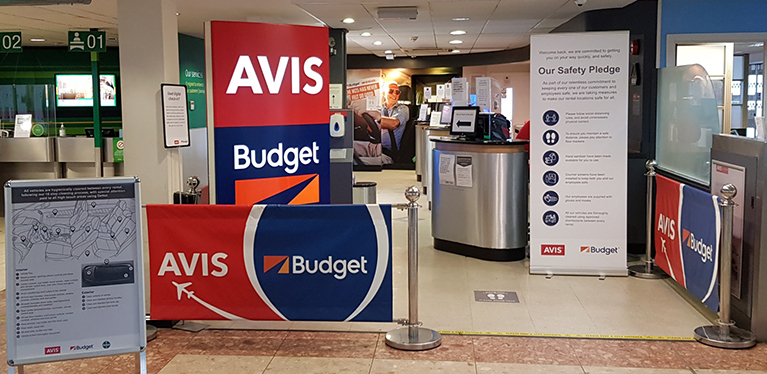Great Info To Deciding On Car Rental Websites
Great Info To Deciding On Car Rental Websites
Blog Article
What Are The Factors To Take Into Consideration When Setting Your Budget For Renting A Car?
The process of determining your budget for renting a car involves considering many factors, including the cost of renting, insurance, fuel costs as well as any other charges. Here's how to simplify it Cost of Rental: Begin by researching rental firms and comparing their prices for the type of car you need. Rental rates can vary based on factors such as location, rental duration and the kind of vehicle. Request quotes from rental companies by contacting them directly or making use of online booking platforms.
Insurance: Understand the insurance options offered by the rental company. Insurance coverage is usually included in rental charges However, you are able to choose to add additional coverage. Consider the cost and the coverage offered by the supplemental insurance package to determine whether it's feasible for you.
Fuel Costs Estimate the cost of fuel for your trip by calculating the distance traveled and performance of the car you're renting. Fuel prices are updated in the region you will be traveling and you can calculate the amount of fuel you will require. Hire a car through a company that has fuel policy. This may include returning the car full.
Additional Charges – Consider all possible additional charges, for example, fees or taxes for extra equipment or services (e.g. GPS navigation, car seat) or fines for returning the vehicle in a hurry or exceed the mileage limit. It is important to read through the rental agreement to make sure that you are aware of all charges.
If you know all the information on your rental fee and insurance coverage, as well as the fuel costs, and any additional costs, add them all up to calculate the total cost to rent a vehicle that will fit within your budget. Be sure to allocate some extra cash for any unexpected expenses or emergencies that arise during the rental. You may want to reconsider your rental options when the total amount is greater than the budget you have set. For example, choose smaller cars or cut back on your add-on services to remain within your budget. Take a look at the best rent a car examples for more examples including best place to rent a car, car rental prices per day, hire cars under 25, car rental prices, best place to rent a car, trip rent a car, car rental rate, hire cars, drive rent a car, rent a car around me and more.
How Can You Check The Vehicle For Signs Of Damage?
Before you sign the lease It is essential to inspect for wear and wear. Otherwise, you may be held accountable for problems that already existed. To conduct a thorough examination make sure to follow these steps:
It is important to carefully examine the car's exterior for scratch marks, dents and other marks.
Take extra care when you are driving with bumpers.
Look for cracks, chips or chips on the windshield.
Look underneath the car for indications of leaks or damage to the undercarriage.
Interior Inspection:
Lift the doors to the car including the trunk.
Be sure to inspect the upholstery, seats, and carpets for stains, tears or excessive wear.
Check all adjustments to the seat, including the driver's seat to make sure they work properly.
Examine the steering column, dashboard and controls to see the presence of any damages or issues.
Make sure you check the heating, air conditioning and ventilation systems for air conditioning, heating and ventilation.
Test all electronic features, including the audio system.
Functional Inspection:
Start your vehicle and check to see if there are any warning lights or error message displayed on the dashboard.
Check your brakes, the accelerator and clutch (if applicable) for confirmation that they're all working in a smooth manner.
Make sure that the brake lights and turn signals, as well as the headlights and high beams are all working properly by turning them off.
Test the windshield washers, the liquid washer, the horn, and emergency/parking brake.
Note any damage.
Document any damage or issue with a rental agreement offered by the company that leases your vehicle, or an app for your smartphone.
Take photos or videos of the vehicle from a variety of angles, with a particular focus on areas of damage or signs of wear and wear and tear.
Note the dimensions, location and the magnitude of each scratch tear, or other type of damage in the rental contract form.
Before settling the vehicle Bring any damages to the representative of the rental company's attention.
Report Damage:
Inform the representative of the rental company of any current damage or issues you've identified in the course of your inspection.
Request that they note any damages to their documents. Also request a copy of the inspection report.
Sign the rental agreement form, or the inspection report together with the representative from the rental company to confirm the damage that is already present.
If you follow these guidelines and carefully inspect the rental car before accepting it for any damage, wear and tear or other indications to ensure your safety and enjoy a more pleasant rental experience.
How Should You Approach The Terms Of Return Of Your Rental Car?
Take note of these crucial points when reviewing the conditions and terms for the return of your rental vehicle. This will ensure a smooth and easy procedure. These are the most important points to be aware of the designated drop-off location Check the drop-off location in the rental agreement. Return the vehicle to the exact location that was established with the company. Many rental companies offer numerous drop-off locations, like rental offices or airport terminals. Thus, it is essential to confirm the exact address.
Check out the return time that is specified in the rental agreement. Rental companies will usually specify the date and time for return for each vehicle. You must return the car by the deadline specified to avoid incurring penalties or late fees.
Late Return Penalties: Review the rental agency's policies on late return and any penalties in connection with it. Be aware of the penalties for returning the car after the time specified. These may include late fees or additional charges. Some companies may charge for a day's rent or part-days if the car is not returned on time.
Extension Options: If you are having to rent the car for longer than you originally anticipated, ask about extension options. Some rental companies permit renters to extend the rental period, subject to availability and extra fees. You should contact the rental company in advance to ask for an extension.
Return Condition Requirements: Acquaint yourself with the rules for returning the rental car in a good condition. The majority of rental agreements stipulate that the vehicle must be returned in the condition it was when rented. Note any instructions to remove or clean the car before returning it.
When you return the vehicle examine it carefully. Examine for any new problems or damage that could have arisen during the rental period. Record any new problems or damage and bring it to the attention the agent's representative.
Return Process. Learn about the return process and any documentation or procedure that is required. Follow the instructions provided by the rental agency for returning keys, filling out all necessary paperwork, and getting a receipt or confirmation of return.
You can stay clear of penalties and complications by reviewing these aspects, as well as the terms and conditions for the return of your rental car.